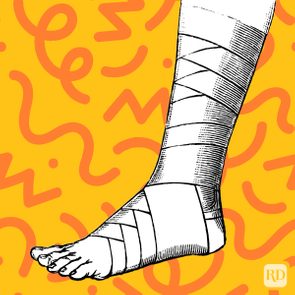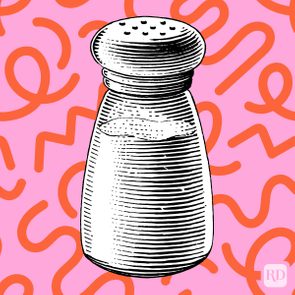Bring some Aussie attitude to your everyday life with this common expression. Here's the real meaning of no worries.

What Does “No Worries” Mean, and Where Did the Term Come From?

Raise your hand if you’ve ever said “no worries” when a co-worker schedules a meeting for 5 p.m. on a Friday. To be clear, there are worries (namely, about your happy hour plans), but the little white lie helps keep the peace. Just like most English expressions, the meaning of no worries changes with the context. And understanding the phrase no worries‘ meaning will help you use it properly.
English expressions can be real head-scratchers, especially when you don’t know where they came from. For instance, why do we say “spill the beans” when we’re not talking about actual beans? And why do we “knock on wood” or quit something “cold turkey”? Even when the meaning of a particular expression is more or less obvious, the origin may still provoke curiosity. That’s the case with no worries.
Not sure if you’ve been using the term correctly? No worries. We dove deep into the history of the expression to find out why we say it so much. Read on to learn what the phrase no worries means, why it’s so closely associated with Australia and how it migrated to the United States.
Get Reader’s Digest’s Read Up newsletter for more word history, humor, travel, tech and fun facts all week long.
What is the meaning of no worries?
It certainly seems simple enough: As Merriam-Webster notes, no worries means “there is no reason to worry.” But there are a couple of slightly different implications and uses for the phrase.
The literal meaning
There is, of course, the literal meaning of no worries as a “don’t worry, be happy” type of mantra. It can mean that you try to live life without worry. But you’re less likely to encounter this version in everyday conversation.
A response to “thank you”
A more common meaning of no worries is as a response to “thank you.” Think of it as a chill, breezier alternative to “you’re welcome.” And yes, it really is friendly: The Cambridge Dictionary even defines no worries as “a friendly answer when someone thanks you.” So it’s perfectly polite to use the phrase in this context.
A response to “I’m sorry”
Another potential use is as a response to “I’m sorry.” If someone apologized for a minor offense, you might say, “Don’t worry about it. Or you could save a few syllables by saying, “No worries!”
Where did the phrase no worries come from?

Most experts believe the Australians came up with the expression no worries—the Oxford English Dictionary even points to the Land Down Under as the originator. The phrase is emblematic of the country’s stereotypical laid-back, happy-go-lucky attitude (and its surfing culture, in particular).
First recorded in the 1960s, the expression (especially with the “you’re welcome” meaning) gained popularity in Australia before hopping over to neighboring New Zealand and then finding widespread use in Asian countries like Singapore and Malaysia.
According to Google and Quartz data, its popularity in the United States spiked through the 1980s, ’90s and 2000s. This could have been due in part to cross-cultural influence between Australian surfers and Californians.
But the most likely explanation probably just boils down to pop culture. Paul Hogan’s Mike said it in the 1986 hit film Crocodile Dundee, and U.S. commentators said it frequently during the Sydney Olympics in 2000. You hear it in early-2000s Australian-influenced media, from The Crocodile Hunter to Finding Nemo. Of course, we also have 1994’s The Lion King. It wasn’t set in Australia, but it featured a certain problem-free philosophy—and the lyrics “no worries”—in a top bop.
Put that all together, and you can see how no worries grew in popularity in the States and remains a kind of popular slang to this day.
Are there synonyms for no worries?
We know what you’re all thinking: Yes, hakuna matata is a synonym for no worries. The phrase is a Swahili expression, one that translates to “no trouble,” “no problems” or “take it easy.” Or as Timon and Pumbaa say in The Lion King, “It means ‘no worries’ for the rest of your days. It’s our problem-free philosophy.”
Here are some no worries synonyms that work in the literal sense:
- Hakuna matata.
- Take it easy.
- Don’t worry, be happy.
- It’s all good.
If you’re using it as a response to “thank you,” these synonyms for no worries work just as well:
- You’re welcome.
- Welcome.
- No problem.
- Don’t mention it.
When someone says “I’m sorry,” these no worries synonyms are suitable responses:
- No problem.
- It’s all right.
- Don’t sweat it.
- Sure thing.
- It’s OK.
- I forgive you.
Is it correct to say “no worries”?
A source of confusion over this expression is whether the correct phrase is no worries or no worry. After all, no problem is singular. Should no worries be too? Further complicating matters, the first recorded use of the expression in the Oxford English Dictionary does say “no worry,” not worries. Recorded in 1965 in the Sydney-based OZ magazine, it read: “No worry … it’s amazing what a few schooners of jolly does for a bloke.”
Can’t keep it straight? No need to worry. Both are technically correct, though no worries is more common today. While no worries is not a particularly formal expression, it’s not in any way incorrect.
You should also keep in mind that no worries is best used as a breezy response or a frivolous declaration of your vibe. If you use no worries as a response to someone’s genuine worries or stressors, that could easily come across as insensitive or make things worse. It’s certainly one of the things you should never say to someone experiencing anxiety. But in situations where it won’t be construed in that way, we think you should say it as much as you please!
Why trust us
At Reader’s Digest, we’re committed to producing high-quality content by writers with expertise and experience in their field in consultation with relevant, qualified experts. We rely on reputable primary sources, including government and professional organizations and academic institutions as well as our writers’ personal experiences where appropriate. We verify all facts and data, back them with credible sourcing and revisit them over time to ensure they remain accurate and up to date. Read more about our team, our contributors and our editorial policies.
Sources:
- Quartz: “How ‘no worries’ infected American English”
- Oxford English Dictionary: “No worries”
- Cambridge Dictionary: “Meaning of no worries in English”























